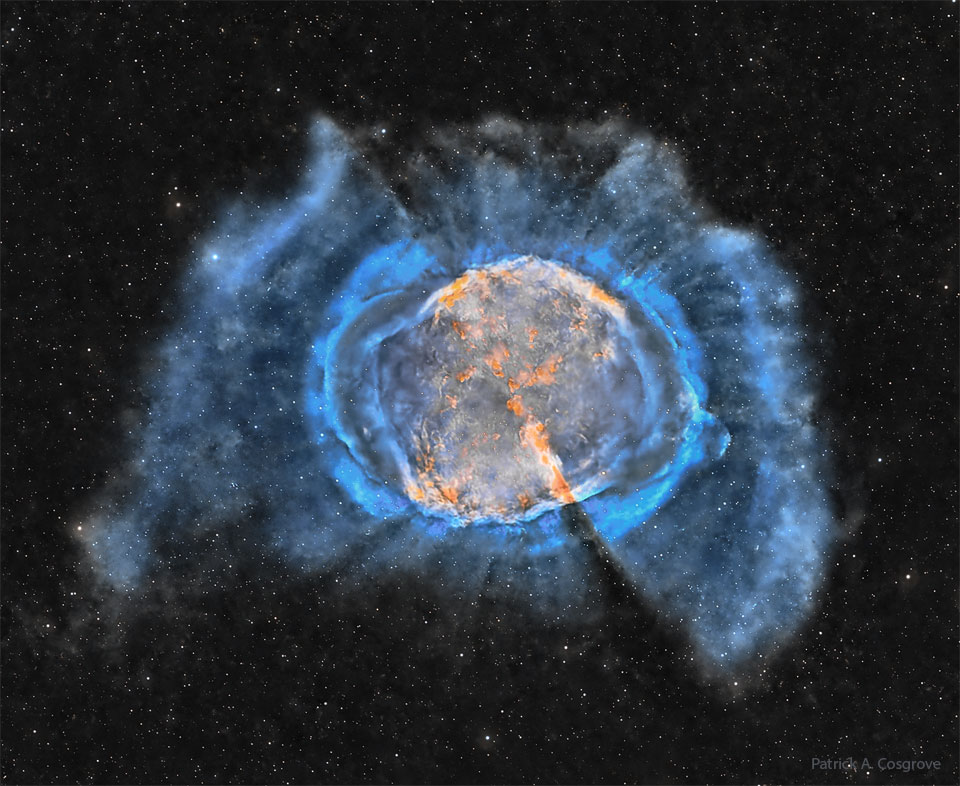2023年5月30日
M27: The Dumbbell Nebula
Image Credit & Copyright: Patrick A. Cosgrove
Explanation: Is this what will become of our Sun? Quite possibly. The first hint of our Sun‘s future was discovered inadvertently in 1764. At that time, Charles Messier was compiling a list of diffuse objects not to be confused with comets. The 27th object on Messier’s list, now known as M27 or the Dumbbell Nebula, is a planetary nebula, one of the brightest planetary nebulae on the sky and visible with binoculars toward the constellation of the Fox (Vulpecula). It takes light about 1000 years to reach us from M27, featured here in colors emitted by sulfur (red), hydrogen (green) and oxygen (blue). We now know that in about 6 billion years, our Sun will shed its outer gases into a planetary nebula like M27, while its remaining center will become an X-ray hot white dwarf star. Understanding the physics and significance of M27 was well beyond 18th century science, though. Even today, many things remain mysterious about planetary nebulas, including how their intricate shapes are created.
Tomorrow’s picture: watch a galaxy form
M27: 哑铃星云
影像提供与版权: Patrick A. Cosgrove
说明: 我们的太阳将来会变成这付模样吗?非常可能。太阳未来宿命的线索,首次意外发现于1764年。在当时,梅西耶正把一些可能会和彗星混淆的弥漫天体编录成册。在梅西耶的名册里,编号第27的天体称为M27或哑铃星云,是个行星状星云。M27是夜空中最明亮的行星状星云之一,用双筒望远镜就能在 北天狐狸座的方向见到它的身影。在这幅色彩缤纷的主题影像里,M27内的硫(红)、氢(绿)和氧(蓝)所发出之辉光,大约要历时1,000年才能传到我们这里。我们如今知道再过约60亿年,太阳也会抛出它的外层气壳,形成类似M27的这类行星状星云,而其孑遗的核心将成为会发出X射线的炽热白矮星。不过,M27的物理内涵和其重要性,皆远非18世纪的科学知识所能理解。甚至到现在,行星状星云仍有许多未解之谜,其中包括它们错综复杂的形状是如何产生的。
明日的图片: watch a galaxy form







